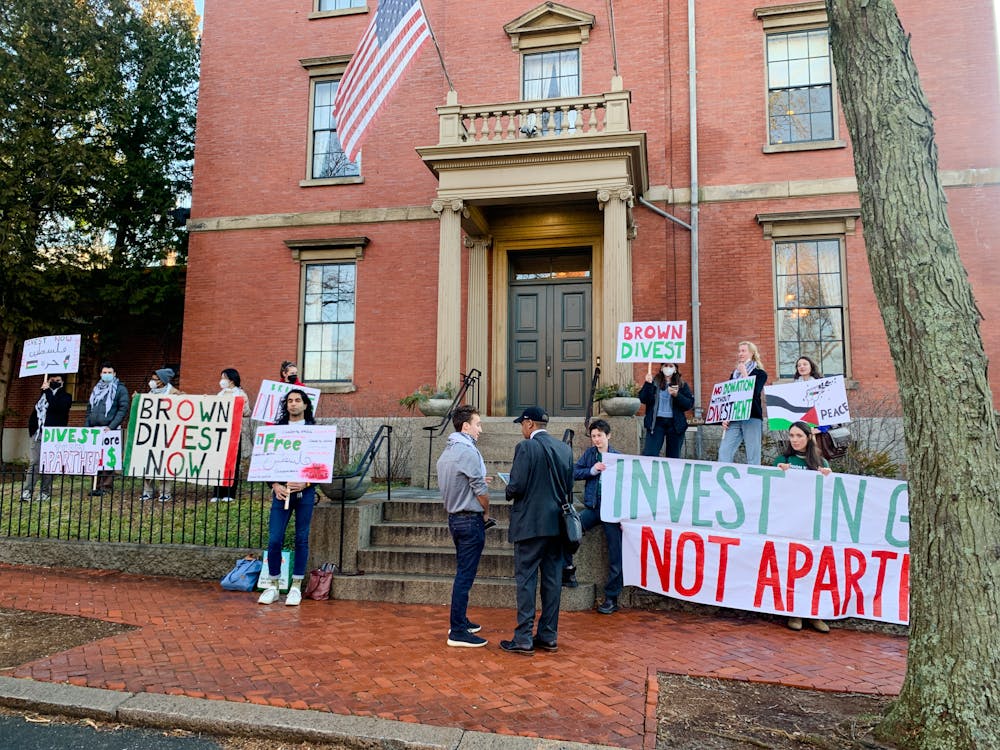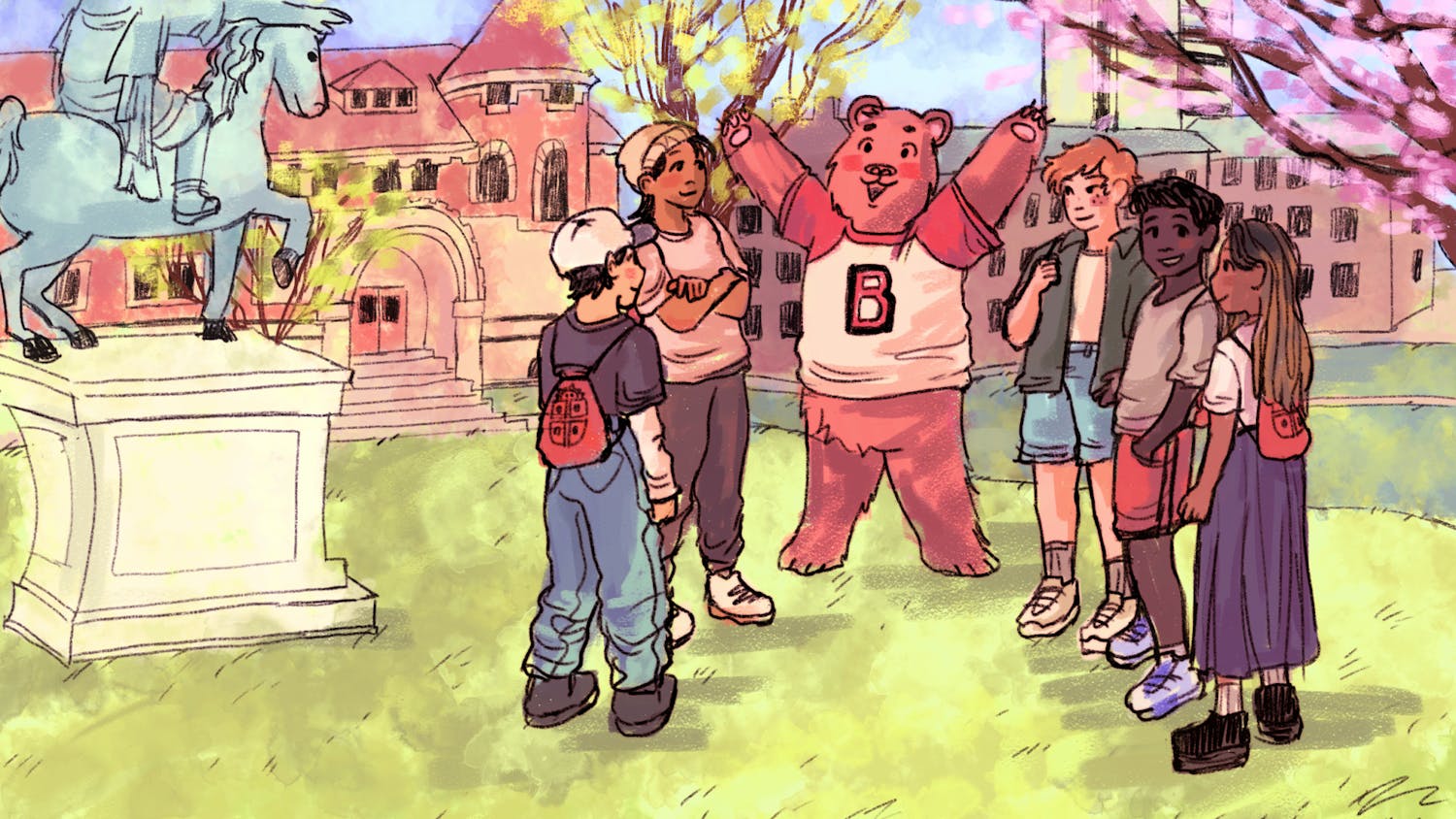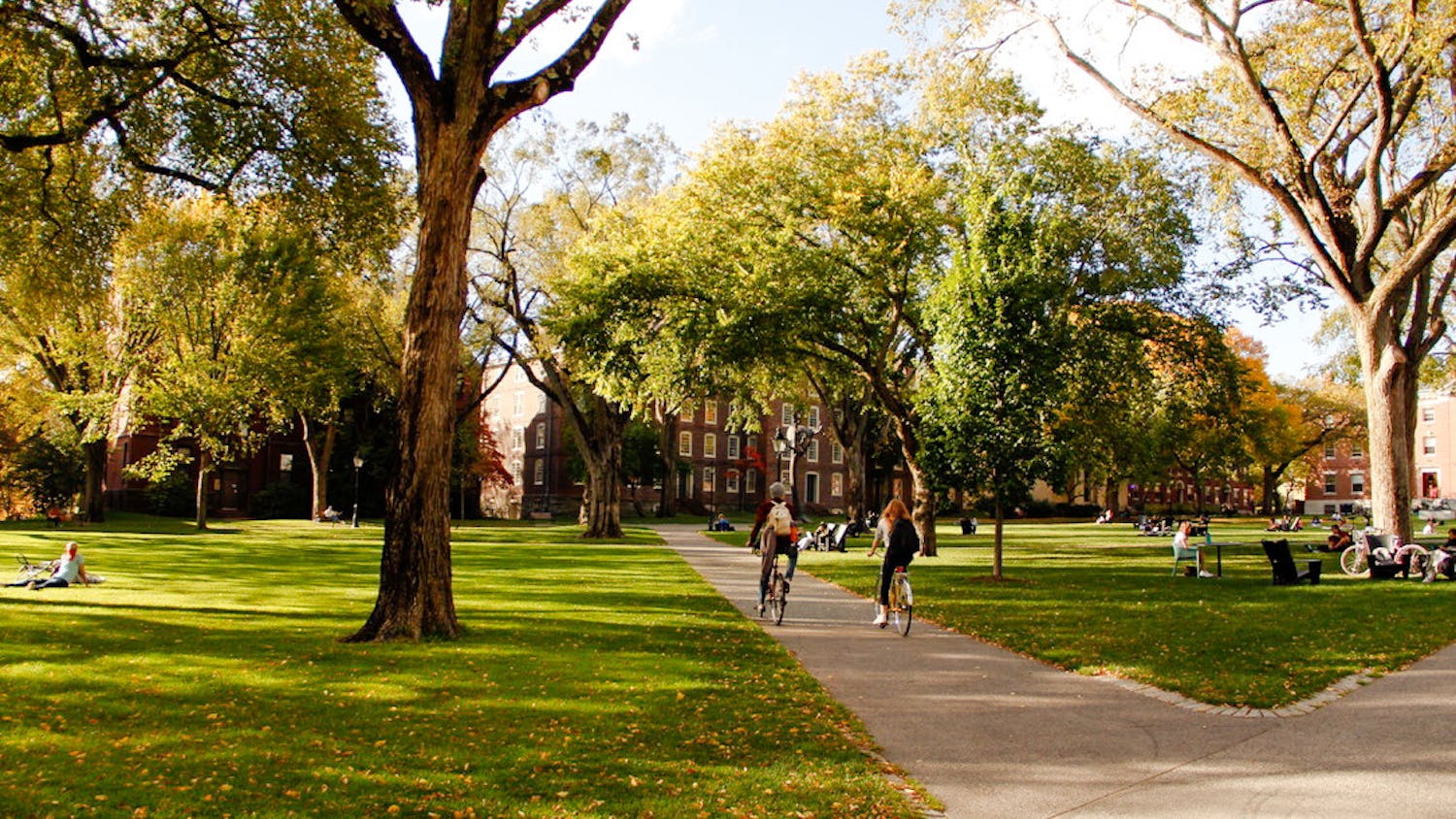Since fall 2022, Brown has seen a revival of activism on campus and the unionization of computer science teaching assistants. Here are the key things you need to know about activism and labor on campus.
Brown Activist Coalition
This spring, several campus activists announced the revival of the Brown Activist Coalition, an alliance of activist groups across the University that aims to build solidarity and encourage collaboration among activists. The coalition held its first in-person conference since the onset of the COVID-19 pandemic in January, during which more than a dozen campus activist and labor groups gave presentations about their organizations to a packed room of prospective and current student activists.
BAC is actively campaigning to encourage the University to invest more in the Providence community by increasing its voluntary payments to the city in lieu of taxes. The payments are currently being renegotiated by the University and Mayor Brett Smiley’s office, President Christina Paxson P’19 P’MD’20 said in February. “It’s important that we act and mobilize now (to) ensure continued investment in the city,” said Lorenzo Mahoney ’24, a BAC member, at the UCS-sponsored teach-in in March.
Teaching Assistant Labor Organization
Last month, more than 90% of eligible computer science teaching assistants voted in favor of unionizing under the Graduate Labor Organization, paving the way for the official formation of their union — the Teaching Assistant Labor Organization — and the start of contract negotiations between union organizers and the University.
TALO first announced its unionization campaign in December 2022, after which the University declined its request for voluntary recognition — prompting the organizers to file a petition with the National Labor Relations Board. TALO organizers have previously told The Herald that the union will enable CS TAs to bargain for higher wages and better working conditions, including more defined responsibilities and revamped feedback mechanisms.
‘DIRE’ and ‘Divest and Democratize’ campaigns
Multiple activist groups on campus have recently launched campaigns to demand the University change its investment and gift acceptance practices. After reviving Brown’s Sunrise Movement chapter this past fall, organizers published their “Dissociate Now” report in March, which investigated the University’s financial and social ties to the fossil fuel and climate disinformation industries.
The report’s release coincided with the launch of Sunrise’s “DIRE” campaign calling for the University to cut financial ties with fossil fuel companies in its retirement funds, ban the acceptance of gifts from fossil fuel companies and ban fossil fuel companies from hosting recruitment events on campus, while “reinvesting” in the Providence community. The group held a rally on the Main Green in March to mark the launch of the campaign and deliver their report to University administrators. Recently, they have organized letter-writing campaigns and petitions to demonstrate support for their demands.
Students for Justice in Palestine has also launched its own divestment campaign — “Divest and Democratize” — demanding that the University divest the endowment from companies that the group says are “profiting from Israeli apartheid and (are) complicit in human rights abuses against Palestinians,” according to the campaign flier. The campaign also calls for increased transparency concerning the University’s investment practices, including increased community access to the dealings of the Corporation, the University’s highest governing body.
Together with GLO, SJP members gathered outside the Faculty Club to greet Corporation members as they met for their February meeting. And in March, the group hosted a rally on the Main Green and delivered letters to the office of Paxson and University administrators encouraging them to support their divestment demands.
Ongoing GLO negotiations
This winter, GLO began renegotiating its collective bargaining agreement with the University in advance of its expiration in June. Per GLO’s request, the negotiation sessions use an open-bargaining structure, allowing any graduate worker who is covered by GLO’s contract to attend the meetings and voice their opinions.
In their first four meetings, GLO has proposed a range of amendments to expand the bargaining unit and protections for graduate workers.
More contentious issues like graduate worker stipends have yet to make their way onto the negotiation table, potentially meaning that discussion between GLO and the University could extend past June, in which case workers would continue to operate under the existing contract, according to GLO President Sherena Razek GS.

Katie Jain is a University News editor from New Jersey overseeing the graduate student life beat. She is a senior concentrating in International and Public Affairs and History.

Sam Levine is a University News editor from Brooklyn, New York covering on-campus activism. He is a senior concentrating in International and Public Affairs.





